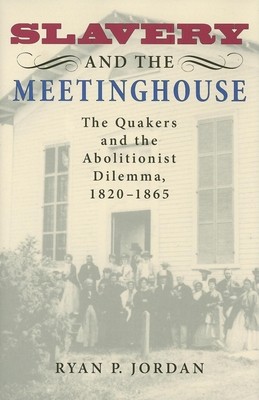
- We will send in 10–14 business days.
- Author: Ryan P Jordan
- Publisher: Indiana University Press
- ISBN-10: 0253348609
- ISBN-13: 9780253348609
- Format: 16.7 x 24.3 x 2 cm, hardcover
- Language: English
- SAVE -10% with code: EXTRA
Reviews
Description
Ryan P. Jordan explores the limits of religious dissent in antebellum America, and reminds us of the difficulties facing reformers who tried peacefully to end slavery. In the years before the Civil War, the Society of Friends opposed the abolitionist campaign for an immediate end to slavery and considered abolitionists within the church as heterodox radicals seeking to destroy civil and religious liberty. In response, many Quaker abolitionists began to build "comeouter" institutions where social and legal inequalities could be freely discussed, and where church members could fuse religious worship with social activism. The conflict between the Quakers and the Abolitionists highlights the dilemma of liberal religion within a slaveholding republic.
EXTRA 10 % discount with code: EXTRA
The promotion ends in 5d.14:10:42
The discount code is valid when purchasing from 10 €. Discounts do not stack.
- Author: Ryan P Jordan
- Publisher: Indiana University Press
- ISBN-10: 0253348609
- ISBN-13: 9780253348609
- Format: 16.7 x 24.3 x 2 cm, hardcover
- Language: English English
Ryan P. Jordan explores the limits of religious dissent in antebellum America, and reminds us of the difficulties facing reformers who tried peacefully to end slavery. In the years before the Civil War, the Society of Friends opposed the abolitionist campaign for an immediate end to slavery and considered abolitionists within the church as heterodox radicals seeking to destroy civil and religious liberty. In response, many Quaker abolitionists began to build "comeouter" institutions where social and legal inequalities could be freely discussed, and where church members could fuse religious worship with social activism. The conflict between the Quakers and the Abolitionists highlights the dilemma of liberal religion within a slaveholding republic.


Reviews